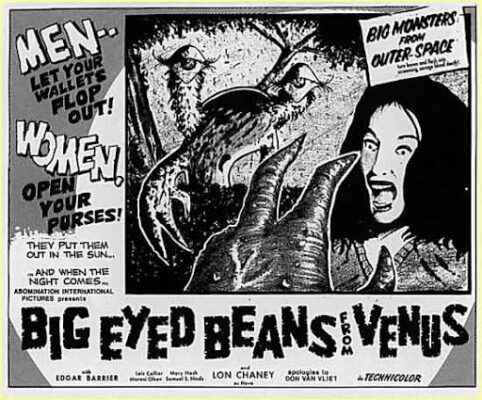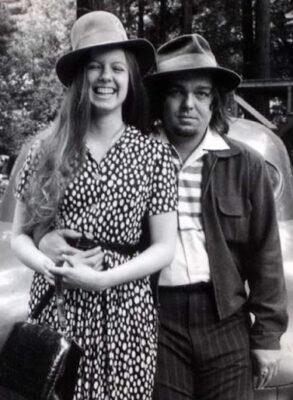
Cinematic. From his first words he sets it out, frame by frame. The situation whereby us folk gather in a circle stunned by the alien assault and preparing for the next wave of human annihilation. Possibly the circle of “earth people” is world leaders in a United Nations type emergency meeting, but it doesn’t really matter. The greatest existential challenge portrayed in fascinating drama- all in just a few words. Lyrically perfect. Perfect. Perfect.
Over the years as I struggled to decipher the lyrics to some of his songs and grasp their meaning, I would have many moments of enlightenment and laugh aloud-did he identify the sex organs with that metaphor, the sexual acts in that way, the secretions in those terms. He was bold. He was brazen. A lyrical genius, whose ambiguity and word malleability protected him from the moral brigade. We loved it. He was tuned to nature and noted it’s decline. Plenty of raw edge in the words to match his extraordinary compositions and playing by the Magic Band as if collectively they were painting unresolved cubist strokes on canvas.
He also wrote very simple and direct lyrics. Easy to comprehend and in less demanding musical landscapes. At times he wrote about Jan, his muse, at times he wrote to her (even in the third person). He offers “I don’t see what she sees in a man like me” almost as an aside, in Her Eyes Are A Blue Million Miles. Captain Beefheart being modest, humble, even vulnerable. These are not words we readily associate with the iconic sheer power of the man. But yes, there is a sensitivity being revealed.
Back to BEBFV, on every listen it was lyrically perfect, arguably his most perfect. And yet the intrigue, mystery and unanswered of so much of his lyrics set in other dynamic angular songs was not present. Why ?
Was it possible that the screen on which he projected these wonderful alien invasion images was not a hard surface but a fabric surface, capable of holding those scenes but also acting as a cloak, a shroud, a cover for its real intent. Could this be a lot more personal.

A letter to Jan perhaps. “We always been together but there’s more”
As a wordsmith, painter, sculptor and observer Don was reflective and there is a high probability that the following assumptions are correct
1. That he knew that Venus was the Roman goddess of love
2. That he was aware of Botticelli’s famous classical painting ‘The Birth of Venus;’
3. That he was aware of the demographic changes in American families. Grandparents and parents of his generation often came from large families. There had been widespread migration from rural communities to urban post–depression. Populations of whole townlands had until recently consisted mainly of first cousins, second cousins etc from relatively limited genetic pool. Lots of “distant cousins”. The reduction in family sizes in his generation became noticeable.
4. That he was familiar with the photographs, drawings and anatomical representations of the foetus with protruding eyes, a disproportionately large head and the body folded in the womb in foetal position.
5 That he was aware of the connections between the lunar cycle and tribal fertility rites, menstruation, safe or fertile times etc – “long lunar note”.
6. That he also knew of the perception rife in society for the childless couple since biblical times. Failure to reproduce was deposited on the female and totally unkind expressions such as barren or sterile were widely used. Indeed one vengeful curse regularly hurled throughout the ages was that of childlessness – “worstest of curses”
7. That he was also conscious of how the rearing of children can come between a couple.
8. Finally, that he was fully aware that family planning and in particular the recently available
oral contraceptive pill allowed couples the opportunities to make decisions previously limited
or effectively denied to their earlier generations.
With these in mind, is it possible that Don wrote this incredible love letter to Jan ?
They are in a young and settled marriage and this is a deeply personal issue. He understands nature’s incline on women towards reproduction.
In doing so he chooses a highly creative and dynamic backdrop with rich imagery as camouflage compared to a simpler relaxed song format.
“Don’t let anything get in between us” or “a man or a woman without a big eyed bean from venus, is sufferin’ with the worstest of curses” or “let a few out, let ‘em pass in between us” marks out the dilemma.
If this is the case, then possibly he is also reassuring to Jan that she will be a wonderful mother. The sun & evening section could be in literal time or representing life span. In the former, the child will play outdoors and in the evening will effusively regale you with the day’s chatterbox tales of fun, gossip, mystery and mischief. They will “glow” under your care. In the seasons’ equivalent of life span the youth of motherhood will in due course advance into the autumn and the grown up offspring will be there for you, will “show” for you.
His declaration “You can be on the right track woman” is followed by a tender note of resignation “of course, of course”. To my ear he is acknowledging to Jan that this is her decision? That’s how I hear it. In essence he is giving Jan the choice.
I can still absorb and focus on the song as the aliens arriving on earth. A lifetime of being entertained in this manner is not going to be easily or willingly forgotten. That would seem like betrayal.
On BEBFV however there is another prism. So there are two narratives. If indeed this is a letter to Jan, is it not one of the most selfless love letters ever committed and therefore is it possibly one of the greatest love songs ever recorded ?
Brian Neavyn
Copyright 2024
